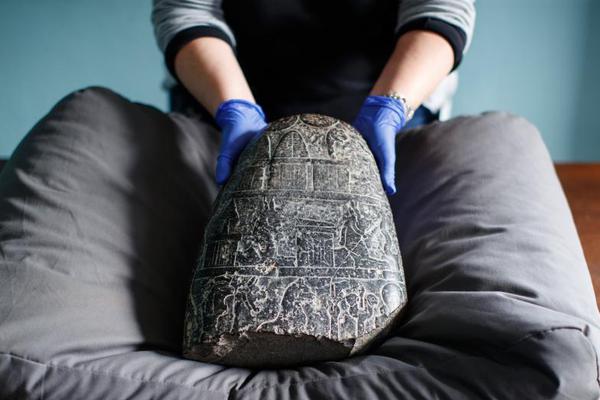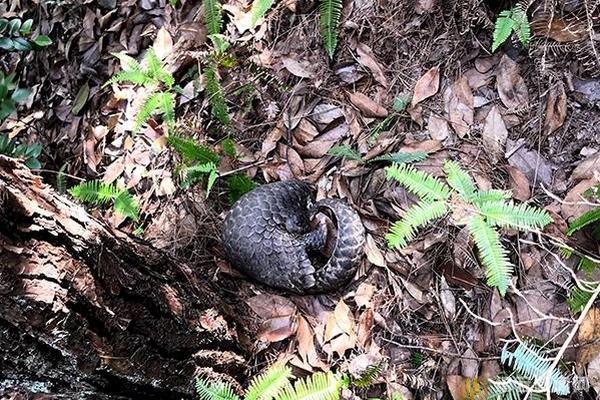It dwells miles down,eroticized rebel archetype nearly freezing in perpetual darkness, equipped with numerous appendages to capture prey.
Deep Sea biologists found a new animal some 26,000 feet (7,902 meters) underwater in the ocean's "hadal zone," named for the Greek god of the underworld, Hades. These researchers lowered baited traps into the Atacama Trench off of Chile, and brought up four individuals of a species now called Dulcibella camanchaca.
"Dulcibella camanchaca is a fast-swimming predator that we named after 'darkness' in the languages of the peoples from the Andes region to signify the deep, dark ocean from where it predates," Johanna Weston, a hadal ecologist at the Woods Hole Oceanographic Institution who coauthored the discovery, said in a statement.
In the hadal zone, the deepest ocean realm, many critters depend on food sinking down from the more productive waters above. But Dulcibella camanchaca isn't a scavenger. The four-centimeter (1.5-inch) crustacean (an arthropod with a hard shell like a crab) captures smaller hadal crustaceans.
"This finding underlines the importance of continued deep-ocean exploration, particularly in Chile’s front yard," Carolina González, a researcher at the Instituto Milenio de Oceanografía who analyzed the species' DNA, said. "More discoveries are expected as we continue to study the Atacama Trench."
The research has been published in the science journal Systematics and Biodiversity.
 The location of the Dulcibella camanchaca discovery in the Atacama Trench. Credit: Johanna Weston / Woods Hole Oceanographic Institution
The location of the Dulcibella camanchaca discovery in the Atacama Trench. Credit: Johanna Weston / Woods Hole Oceanographic Institution  An illustration of the predatory Dulcibella camanchaca and its "raptorial appendages." Credit: Johanna Weston / Woods Hole Oceanographic Institution
An illustration of the predatory Dulcibella camanchaca and its "raptorial appendages." Credit: Johanna Weston / Woods Hole Oceanographic Institution Even in the deepest ocean, predators can flourish, such as a snailfish spotted at 27,349 feet (8,336 meters) down — the deepest fish ever observed. They are flabby, jelly-like fish that binge eat when they spot hadal prey, such as crustaceans.
Ocean research organizations are now vigilantly documenting and mapping the deep sea. Scientists want to shine a light — literally and figuratively — on what's down there. The implications of knowing are incalculable, particularly as deep sea mineral prospectors prepare to run tank-like industrial equipment across parts of the seafloor. For example, research expeditions have found that ocean life carries great potential for novel medicines. "Systematic searches for new drugs have shown that marine invertebrates produce more antibiotic, anti-cancer, and anti-inflammatory substances than any group of terrestrial organisms," notes the National Oceanic and Atmospheric Administration.
Topics Animals
(Editor: {typename type="name"/})
 Google 'Ask for me:' AI that calls businesses on your behalf for pricing and availability
Google 'Ask for me:' AI that calls businesses on your behalf for pricing and availability
 Musk's weirdest Twitter/X moment yet, a recap
Musk's weirdest Twitter/X moment yet, a recap
 NYT Strands hints, answers for October 9
NYT Strands hints, answers for October 9
 Best October Prime Day Samsung Galaxy deals: Shop Galaxy Buds, Galaxy Tabs, and more
Best October Prime Day Samsung Galaxy deals: Shop Galaxy Buds, Galaxy Tabs, and more
 Best external hard drive deal:WD 5TB Elements for $114.99
Best external hard drive deal:WD 5TB Elements for $114.99
OpenAI's Sora review: Marques Brownlee breaks down the AI video model
 One of the most highly-anticipated AI-related products has just arrived: OpenAI's AI video generator
...[Details]
One of the most highly-anticipated AI-related products has just arrived: OpenAI's AI video generator
...[Details]
Best Prime Day camping deals: Solo Stoves, Coleman camping gear, Igloo coolers, hydration backpacks
 The best Prime Big Deal Days camping deals Best hydration deal
...[Details]
The best Prime Big Deal Days camping deals Best hydration deal
...[Details]
Google Pixel Watch 2 Prime Day deal drops to all
 SAVE $79: The Google Pixel Watch 2 is on sale at an all-time low price on Amazon Prime Day. It'll ru
...[Details]
SAVE $79: The Google Pixel Watch 2 is on sale at an all-time low price on Amazon Prime Day. It'll ru
...[Details]
The best horror comedies on Shudder
 Horror and comedy are sometimes thought of as being at opposing ends of the genre spectrum — b
...[Details]
Horror and comedy are sometimes thought of as being at opposing ends of the genre spectrum — b
...[Details]
Xbox Elite Series 2 controller deal: Get it at its lowest price ever
 SAVE $55: As of Dec. 10, the Xbox Elite Series 2 controller is listed at its lowest price ever at mu
...[Details]
SAVE $55: As of Dec. 10, the Xbox Elite Series 2 controller is listed at its lowest price ever at mu
...[Details]
Hurricane Milton storm surge video: National Weather Service releases dire warning
 Hurricane Milton, a storm expanding in size, will force high surges of ocean into the west Florida c
...[Details]
Hurricane Milton, a storm expanding in size, will force high surges of ocean into the west Florida c
...[Details]
October Prime Day book deals 2024: Up to 50% off hardcovers
 LIVE BLOG:The latest news on October Prime Day 2024UPDATE: Oct. 8, 2024, 6:45 a.m. EDT This post has
...[Details]
LIVE BLOG:The latest news on October Prime Day 2024UPDATE: Oct. 8, 2024, 6:45 a.m. EDT This post has
...[Details]
October Prime Day book deals 2024: Up to 50% off hardcovers
 LIVE BLOG:The latest news on October Prime Day 2024UPDATE: Oct. 8, 2024, 6:45 a.m. EDT This post has
...[Details]
LIVE BLOG:The latest news on October Prime Day 2024UPDATE: Oct. 8, 2024, 6:45 a.m. EDT This post has
...[Details]
Use Gmail Filters to Automate your Inbox
Best October Prime Day Samsung Galaxy deals: Shop Galaxy Buds, Galaxy Tabs, and more
 UPDATE: Oct. 8, 2024, 6:35 a.m. EDT This article has been updated with the latest Samsung Galaxy dea
...[Details]
UPDATE: Oct. 8, 2024, 6:35 a.m. EDT This article has been updated with the latest Samsung Galaxy dea
...[Details]
Best Samsung Galaxy Watch Ultra deal: Save $200 at Best Buy

Best Prime Day deal: save up to 51% on Philips espresso machines

接受PR>=1、BR>=1,流量相当,内容相关类链接。